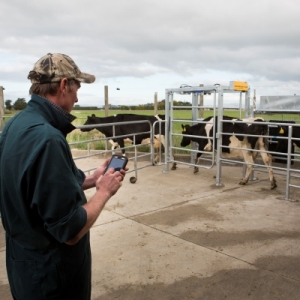There's been a 20% increase in student enrolments in agricultural degree courses at Massey University for 2015, the first such surge in many years.
Dr James Millner, programme director for the ag science degrees, says this year about 140 students will take their degree courses, including bachelor of agri science, emphasising production, and bachelor of agri commerce, with more of an off-farm focus. Interest is also rising in BSc with an agricultural component.
Millner can’t precisely explain these increases, but says Massey intends to survey the students when they arrive on campus.
“Students are more focused on where careers and the highlighted opportunities in the primary industries are starting to have an effect,” he told Rural News. “Most students seem to be from rural backgrounds, but also from cities – including the metropolitan cities.”
Massey has had its recruiters out in key markets to sell the message about the value of agricultural degrees. They are trying to attract students from the big cities.
Millner a lot of effort is going into pointing out to young people, parents and teachers that agriculture is more than just farm work. These jobs are in the service industries including law, accounting, finance and consulting.
“But I am still getting feedback from students in prestigious high schools who should know better about the opportunities in agriculture.
“Young people have said that when it’s suggested they pursue a career in agriculture they get laughed at and told to get serious and asked ‘why aren’t you more ambitious’ and all that sort of stuff.”
Millner says, sadly, agriculture is still regarded by many influential teachers as ‘second rate’.
Meanwhile, Lincoln University is also seeing a rise in students wanting agriculture courses.
Head of Lincoln’s faculty of agriculture, Professor Tony Bywater, says agricultural student numbers have steadily grown over the past few years.
“While this is good for the industry, I am not so sure if it is a good thing for me!” Bywater joked to Rural News.
“I am looking at 300 agriculture students in my first year class this semester.”











